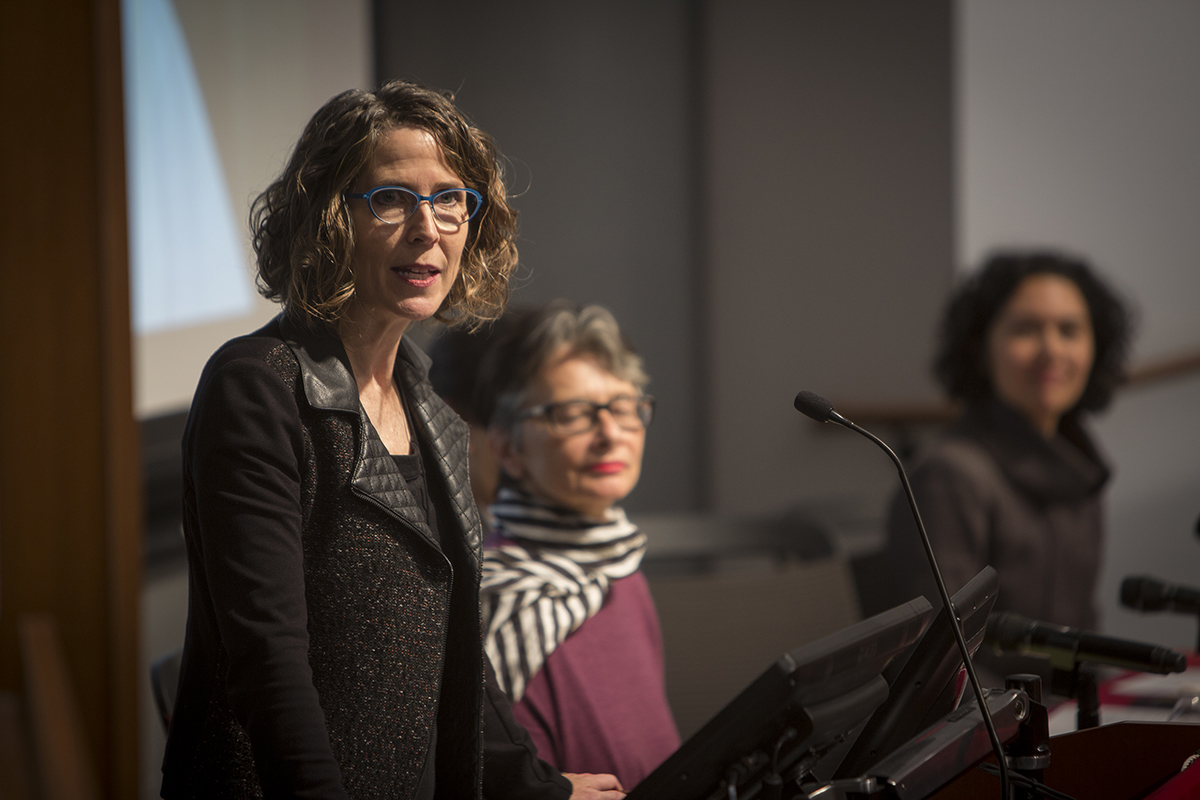Cornell Law School launches death penalty center
By Barbara Esuoso

More than 80 faculty members, professors and students gathered at Cornell Law School Oct. 25 for the launch of the Cornell Center on Death Penalty Worldwide, the first center of its kind in the U.S.
“The center will focus on the application of international human rights norms that favor abolition of the death penalty in the United States and other countries,” said Sandra Babcock, professor of law, the center’s founder and faculty director. In addition to its research, advocacy and litigation on death penalty issues, the Cornell Center on the Death Penalty Worldwide’s major initiative is a summer institute that will bring capital defense lawyers from all over the globe together to share strategies on how to most effectively represent their clients.
In a discussion, panelists who have been focusing on the death penalty during their careers spoke about opportunities and challenges the center faces on the path to the abolition of the death penalty.
Delphine Lourtau, executive director of the Cornell Center on the Death Penalty Worldwide, said the majority of death penalty executions are only carried out in a small number of countries, including China, Pakistan, Iran, Saudi Arabia and the United States. Lourtau also said terrorism has proved to be a challenge to the abolition of the death penalty: “The issue of terrorism has brought many states to revive the death penalty [which] thrives in situations of political tension and unrest.”
Babcock raised the question of whether the death penalty will be abolished in the United States in the near future.
Denny Leboeuf, director of the American Civil Liberties Union’s John Adams Project and a capital defense assistant for Guantánamo detainees, said efforts toward abolition are “succeeding on every front.”
“We learned that big, systemic challenges that are put on have to be supported by a one-life-at-a-time effort to understand [the death penalty] better, by trying these cases, [and using] field and legal tips that can represent clients in post-conviction who are already on death row,” Lebeouf said.
Sister Helen Prejean, best-selling author of “Dead Man Walking,” which has been adapted into film and an opera, spoke of her support for the project via a video conference call.
Funding for the center was made possible by a $3.25 million grant from The Atlantic Philanthropies, founded by Cornell alumnus Charles F. Feeney ’56. The foundation has given Cornell nearly $1 billion over the last four decades, providing funding on a transformative scale for initiatives throughout the university.
In addition to supporting the summer institute, the gift will enable the center to build partnerships with national and international organizations. It will also advance research on discrimination against Latinos facing the death penalty in the United States and help to sustain the center’s free online database on laws and practices in countries and territories where capital punishment is still in place.
“This generous grant will enhance our partnerships with capital defense lawyers, scholars and nongovernmental organizations around the world,” said Babcock. “It will enable Cornell Law students to work on capital punishment and human rights issues at a global level.”
Said Eduardo Peñalver, the Allan R. Tessler Dean of Cornell Law School, “Capital punishment has emerged as one of the most important human rights issues in the 21st century, and I am immensely pleased that The Atlantic Philanthropies has recognized Cornell Law School’s leading role, globally, in this debate.”
The center’s programming will include clinical courses related to international death penalty and human rights issues, training conferences for attorneys and research on vulnerable groups facing capital punishment, such as women and individuals with mental illnesses and intellectual disabilities.
The event was co-sponsored by the Berger International Legal Studies Program.
Barbara Esuoso ’19 is a writer intern for the Cornell Chronicle.
Media Contact
Get Cornell news delivered right to your inbox.
Subscribe